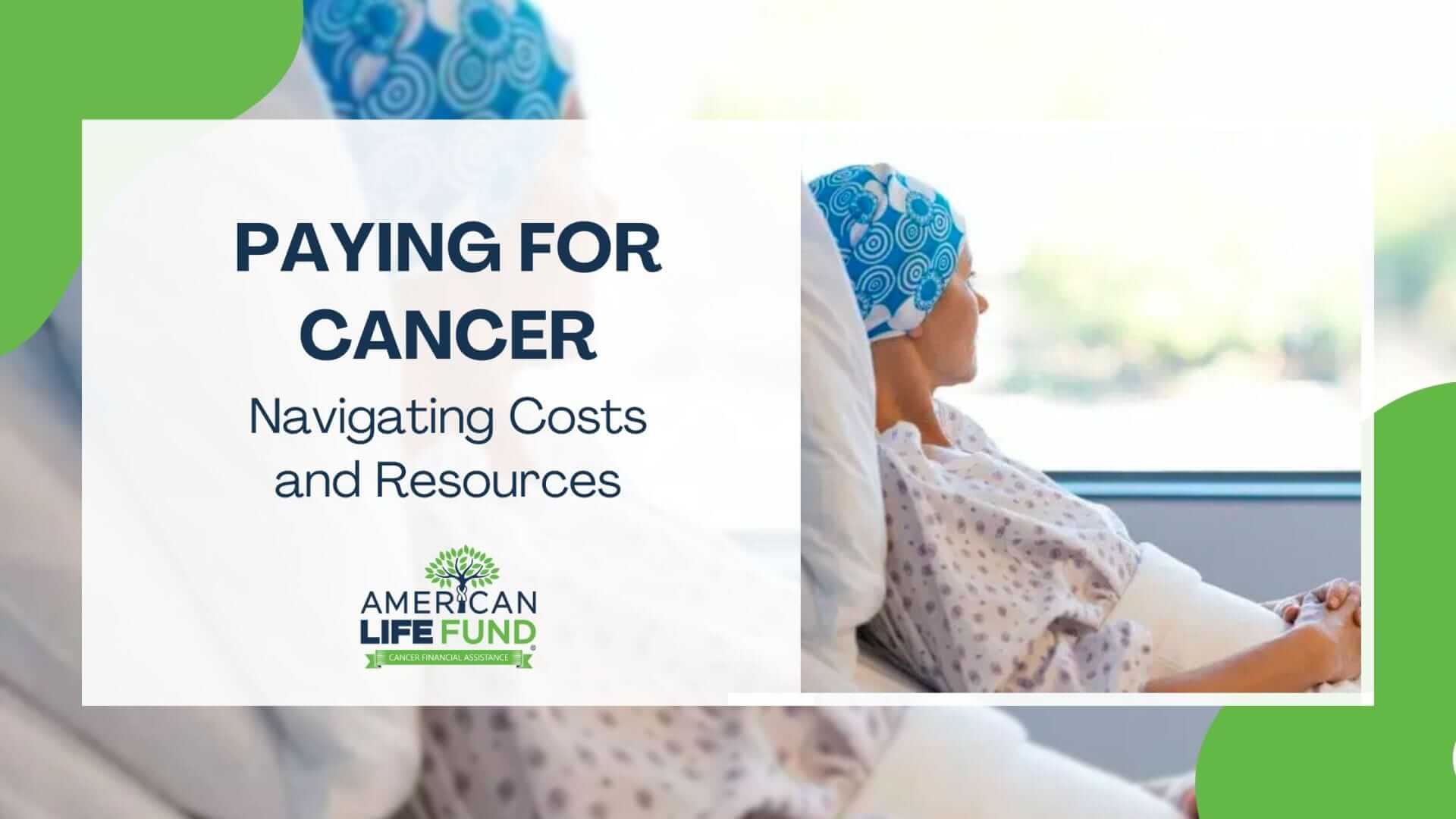The financial overload of treatment adds stress, but there are ways to help. Health insurance, government programs, nonprofit organizations, and pharmaceutical assistance can provide support. Viatical settlements, which allow you to sell your life insurance policy, offer immediate financial relief. These funds can cover medical expenses, living costs, and more, giving you peace of mind to focus on recovery. Remember, help is available. Explore your options and let others support you through this difficult time.
Understanding Cancer Treatment Costs
Processing everything that has to do with cancer treatments is overwhelming. However, gaining a deeper understanding of the costs involved will begin to shift the tides in your favor.
The Financial Burden of Cancer Treatment
Cancer treatment includes an array of medical interventions, each accompanied by its own set of costs. Beyond the direct expenses of chemotherapy, radiation therapy, and surgery, patients may encounter additional financial challenges.
Consider the cost of prescription medications, which range from hundreds to thousands of dollars per month, depending on the drug and treatment regimen. Laboratory tests, imaging scans, and hospital stays further contribute to the overall expense.
Average Costs of Cancer Treatment
The financial toll of cancer treatment varies widely depending on factors such as the type and stage of cancer, treatment modalities, and geographical location. Consider the expenses associated with different treatment options:
- Chemotherapy: $10,000 to $30,000 per month
- Radiation therapy: Thousands of dollars per course of treatment
- Surgery: $14,000 to $45,000 or more, depending on complexity
- Prescription medications: Costs vary widely, with specialty drugs reaching thousands of dollars per month
According to data from the National Cancer Institute, the average annual cost of cancer care in the United States exceeds $150 billion.¹ For individual patients, these costs translate into substantial financial burdens.
These figures represent a fraction of the total expenses incurred by cancer patients and their families. Beyond medical treatments, patients also face additional costs for:
- Supportive care services
- Transportation to and from treatment facilities
- Other related expenses
This financial burden impacts patients’ quality of life and creates barriers to accessing necessary care.
Impact on Patients and Families
The financial strain of cancer treatment extends far beyond medical bills. Patients and their families often find themselves grappling with mounting expenses and difficult decisions as they handle treatment. Some other daily intrusions are:
- Managing treatment appointments
- Coping with childcare costs
- Facing the possibility of reduced work hours
Significant stress and strain on patients is an inevitable outcome and their loved ones too. Tough decisions and sacrifices invariably need to be made in order to prioritize care and maintain financial stability.
Financial Assistance Options
During this challenging time, we understand the importance of finding financial help and assistance to ease the financial burden of cancer treatment. Below, we’ll share several options and local resources that offer valuable support and relief.
Health Insurance
Health insurance is often the first line of defense against the financial costs of cancer treatment. Patients should thoroughly review their health insurance plan to understand coverage limitations, deductibles, and out-of-pocket expenses.
For instance, a typical deductible for health insurance plans range from $1,000 to $5,000 per year. After meeting the deductible, insurance typically covers a percentage of medical expenses, such as 80%, leaving the patient responsible for the remaining 20%. Exploring supplemental health insurance options or upgrading existing plans may provide additional financial protection.
Government Programs
Government programs such as Medicaid and Medicare provide financial support to eligible individuals with limited income or disabilities. For example, Medicaid may cover medical expenses not covered by private insurance, such as deductibles, co-payments, and prescription medications. Patients should explore their eligibility for these programs and consider enrolling to access valuable financial assistance during their cancer treatment.
Pharmaceutical Assistance Programs
Many pharmaceutical companies offer discount drug programs to help patients afford expensive prescription medications. These programs may provide discounts, copay assistance, or free medications to eligible individuals. Patients should inquire with their healthcare providers, health insurance company or directly with drug manufacturers to explore available options.
For example, patients can visit the website of the Partnership for Prescription Assistance (PPA) to search for prescription assistance programs offered by pharmaceutical companies. See our blog on affording cancer medications for more information.
Nonprofit Organizations
Nonprofit organizations dedicated to supporting cancer patients and their family members offer a variety of financial assistance programs. These programs may include grants to cover medical expenses, transportation assistance (such as gas cards or free transportation services to and from treatment appointments), and financial counseling services. Patients can research reputable nonprofit organizations such as the American Cancer Society, CancerCare, or the Leukemia & Lymphoma Society, and apply for assistance as needed.
Viatical Settlements
A viatical settlement is a financial transaction in which a person with a life-threatening illness sells their life insurance policy to a third party for a lump sum cash payment. Viatical settlements offer immediate financial relief to individuals facing serious illnesses, including cancer. Selling your life insurance policy creates immediate funds to cover medical expenses, living costs, and other financial obligations.
Why Viatical Settlements?
Viatical settlements offer several important advantages:
- Immediate access to funds: Viatical settlements provide patients with immediate cash to cover medical expenses and other financial needs.
- Flexibility and control: Patients have the flexibility to use viatical settlement funds as they see fit. You could pay for medical treatments, cover living expenses, or anything else you desire.
- No repayment required: Unlike loans or financial assistance programs that require repayment, viatical settlements do not need to be paid back. The lump sum payment is yours to use as needed.
- Peace of mind: Viatical settlements provide peace of mind and financial stability during a challenging time. Patients can focus on their health and quality of life without worrying about financial burdens.
Summary
As you walk this challenging path of cancer treatment, please know that your journey is not one you have to face alone. There is a genuine sense of hope and resilience within you, and there are numerous avenues of support available to help ease the financial burdens that may come up.
We urge you to reach out, to explore the resources and assistance programs that exist to aid you during this time. Your well-being is a priority to us, and we want to make sure you have access to the help you need.
Viatical settlements offer a sincere option for financial relief, providing immediate assistance and flexibility tailored to your circumstances. We encourage you to consider this route, along with other available options, to find the support and peace of mind you deserve.
Please keep in mind that your financial readiness is key. By actively seeking information, exploring various options, and reaching out for assistance when needed, you will overcome the financial hurdles of cancer treatment with resilience. Rest assured, there is always hope, there are routes to explore, and there are individuals prepared to support you every step of the way.
Frequently Asked Questions
What are some options for managing health care costs during cancer treatment?
Patients can explore several options such as negotiating medical bills, maximizing insurance coverage, and seeking financial assistance from pharmaceutical companies or nonprofit organizations.
How can viatical settlements help with managing health care costs?
Viatical settlements provide an option for immediate financial relief by allowing individuals with life-threatening illnesses to sell their life insurance policies for a lump sum cash payment. This helps cover medical expenses, living costs, and other financial obligations during treatment.
Are there resources available to help me find local support services?
Yes, patients and their families can use online resources, support groups, and community organizations to find local resources such as financial assistance programs, support groups, and transportation services.
What types of health benefits may be available to cancer patients?
Cancer patients may be eligible for various health benefits including coverage for medical treatments, prescription medications, supportive care services, and mental health counseling through their health insurance plans or government programs like Medicaid or Medicare.
How can I understand how to utilize insurance plans and drug companies during cancer treatment?
It’s important to thoroughly review your insurance plan to understand coverage limitations and out-of-pocket expenses. Additionally, patients can inquire about assistance programs offered by drug companies to help with prescription medication costs.
Source:
1. Financial Burden of Cancer Care, https://progressreport.cancer.gov/after/economic_burden
See If You Qualify!





